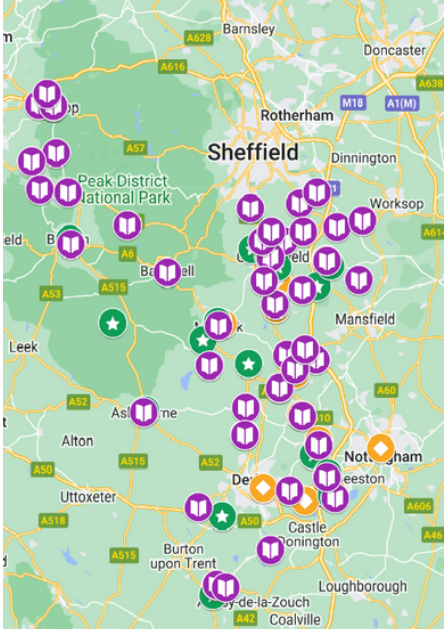How can local Net Zero projects attract investment?
Delivering the UK’s Net Zero commitment will take vision, leadership, co-operation and political will for action. Cities are stepping up to this challenge with a range of innovative projects supporting the energy transition, but they face barriers in funding. How can local authorities create the right conditions to accelerate investment in these sustainability projects?
This was the focus of discussions at the Cities Commission for Climate Investment's North East and Yorkshire regional forum last week, which bought local authorities and private investors into a room together.
Leveraging local knowledge
The Leeds PIPES District Heating Network is providing low carbon, sustainable energy to residents and businesses of Leeds, while raising living standards across the city by reducing fuel poverty. Leeds has delivered phase one of the £40 million programme through a mix of grants from West Yorkshire Combined Authority, Europe, Central government and the Council’s own investment, but they will need more than double that over the next five years, says Polly Cook, Chief Officer, Climate, Energy and Green Spaces at Leeds City Council.
“The reality is that local councils don’t have the ability to invest th at kind of money. We’re going to have to start thinking differently about how we take our projects forward, looking at joint ventures and new networks.”
at kind of money. We’re going to have to start thinking differently about how we take our projects forward, looking at joint ventures and new networks.”
Leveraging local knowledge has been key to meeting that investment challenge, Cooke says. “We’ve been able to look at the data we have in terms of our housing stock and the communities that would be open to the climate agenda in the first place.”
Playing the convenor role that can provide expertise knowledge and bring in investment has led to partnerships with Octopus Energy and Lloyds Banking Group, Cooke explains.
Unlike the slew of organisations offering something similar, local councils are trusted brands - something they should be using to their advantage, she adds. “It’s important for local authorities to recognise the value they can add and the role that can play without having to be fully in control. Equally, we must be prepared to work differently, which sometimes means stepping back to let others bring their skills to these projects.”
Political drive
Climate has become politically divisive; seeking out the co-benefits of local Net Zero projects can help dilute those tensions and secure support.
Creating a link between the benefits of decarbonisation to the quality of  people's life creates a “virtuous circle” that puts political drive back behind investment in local place-based Net Zero projects, says Chris Dunbar, Director Public-Private Partnerships and Infrastructure Advisory, at KPMG.
people's life creates a “virtuous circle” that puts political drive back behind investment in local place-based Net Zero projects, says Chris Dunbar, Director Public-Private Partnerships and Infrastructure Advisory, at KPMG.
Being able to quantify the co-benefits by producing a typology of who is benefiting and why adds further depth to the business case, enabling that broader political narrative to be built into the investment, adds George Munson, Energy and Climate Change Manager at Leeds City Council. "Political drive was key to the roaring success behind Leeds PIPE project,” he adds.
Collaboration
Aggregating local projects into larger programmes can be a huge draw for investment; whether that’s achieved geographically or by templating models and technology. “Fundamentally it's about bang for buck; investing more money while only having to assess the risk of it once,” says Dunbar.
One example is the North East Housing Partnership, which brings together social housing providers – housing associations, local authorities and arms length management organisations – that have a strong presence in the region covered by the new Mayoral Combined Authority, managing around 40,000 homes.
“When you start to aggregate the number and the potential opportunities, with each home representing a £5,000 investment, suddenly we’re talking about £100 million worth of investment across these properties. Then there’s a real opportunity not just to decarbonise homes but bring money back into the region,” Rob Hamilton, head of Investment and Economic Growth at North of Tyne Combined Authority.
North of Tyne Combined Authority.
The Net Zero Hubs are another example, a group of regional programmes providing local capacity support to bring investment into low-carbon net zero infrastructure projects.
The success of these aggregation projects, however, depend on the ability of local authorities to find new ways of working, says Kate Josephs, Chief Executive at Sheffield City Council. “We are moving into a phase of recognition where there is no need for competition among local councils. The scale of the challenge we are facing means we need to be operating at a pace that we have not been operating at.”
Community engagement
At the end of the day, support for the energy transition demands more than just investment. A significant behavioural change is needed that requires communities and individuals to move into positions that are different and sometimes uncomfortable.
 “These are local place-based challenges,” says Emma Fletcher, Low Carbon homes Director at Octopus Energy. “Communities are difficult to percolate, which is why you need local champions to pave the way. We’ve found success by finding ways to communicate through social media for example.”
“These are local place-based challenges,” says Emma Fletcher, Low Carbon homes Director at Octopus Energy. “Communities are difficult to percolate, which is why you need local champions to pave the way. We’ve found success by finding ways to communicate through social media for example.”
Cooke says Leeds City Council have gained tremendous support for their sustainable projects through community engagement initiatives. The Housing Network, for example, played a crucial role in helping home retrofitting gain traction.






